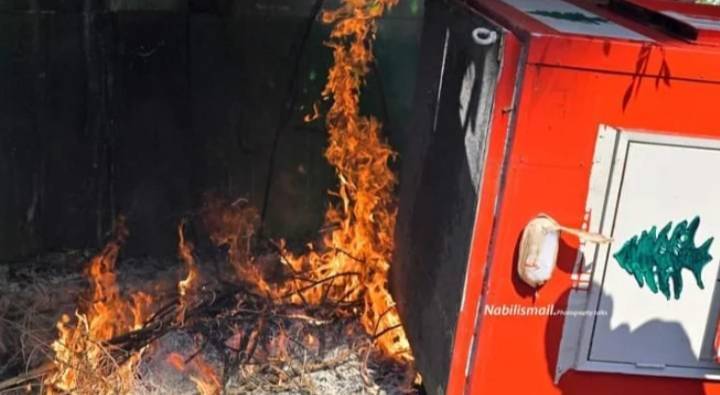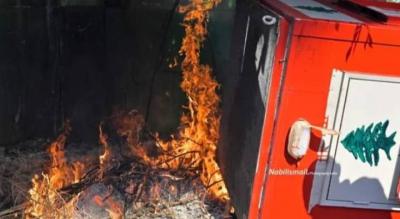A terrifying chaos is being witnessed in the streets, from road blockades to incidents involving banks, along with cases of theft and pickpocketing. All of these are manifestations of a political and economic chaos reflected in society, and the outcomes will not be favorable. This situation is like a snowball, growing over time until it reaches a stage of a significant explosion. At that point, any attempts to control the consequences and contain the public unrest will be futile.
In this context, the Central Security Council, chaired by Prime Minister Najib Mikati and attended by Minister of Interior and Municipalities Bassam Mawlawi, along with security and judicial agencies, convened to affirm the ongoing efforts to maintain security and prevent the political turmoil from impacting public safety. However, this is considered close to impossible, as it is not feasible to separate politics from the daily occurrences of life; any political development will impact society, positively or negatively.
In the same vein, Mikati expressed his surprise at the movements that took place, including instances of riots and assaults on private properties. These security events suggested to him that there seemed to be a "trigger button" used to provoke these actions, raising concerns that the chaos in the streets may be orchestrated by political parties aiming to capitalize on these challenges.
Monitoring sources expressed their fears regarding the escalating street unrest, highlighting that the absence of any reform measures on both economic and social fronts to address the rising dollar exchange rate and its ramifications will have significant ground-level impacts. They warned that economic chaos will lead to social chaos in the streets.
The sources questioned whether certain parties were resorting to exploiting people's suffering to send pressure messages that failed to be communicated through political or diplomatic channels. They emphasized that moving towards resolving constitutional challenges is essential for any economic resolution to subsequently reflect in social calmness, reiterating that dialogue is the optimal solution.
Additionally, the foreign exchange market witnessed a slight decrease in the dollar exchange rate yesterday afternoon, which directly impacted fuel prices, causing a minor drop. Citizens were surprised by this decline, especially since the exchange rate has been on a rising trajectory for a prolonged period, surpassing the 80,000 Lebanese pounds mark without financial reasons.
Economic and Social Council member Dr. Anis Abu Diab attributed the decrease to a single cause: speculation. He stated that "black market traders lowered the exchange rate slightly to encourage people to sell their dollars, fearing a drop, thus gaining new dollars to raise the price again."
In this context, the issue of black market traders and the state's inability to combat their operations remains a significant topic, despite numerous judicial decisions aimed at addressing it. Sources pointed to “the weakness of the state and its agencies” and their inability to take any action to stop these "criminal" activities, stressing the need to regulate their operations to gain some control over the market, although this would not provide a sustainable solution, especially since these traders are known by their identity and place of work.
Moreover, Abu Diab commented to "Anbaa" newspaper that "there is no actual reason for the dollar exchange rate drop, given the deadlock on the presidential election front, ongoing political tensions, absence of reforms, and no legislative sessions being held. The dollar's trajectory remains upward." He stressed the necessity of moving towards political solutions and restoring constitutional procedures to address the economic crisis.
Regarding the street chaos, while acknowledging the suffering of Lebanese people under tough living conditions, he refrained from downplaying the impact of these circumstances, suggesting that "the current movement does not indicate it is merely a response to pain and may not be innocent.” However, he anticipated more scenes of chaos in the country and further "security and social shocks" in the absence of protective solutions and measures.
The fear of escalating chaos is valid, as it leads to nothing but bloody outcomes. It is well-known that every security turmoil is preceded by social protest movements. Therefore, it is essential to urgently address the situation and move towards swift solutions; otherwise, the outcomes could be dire.




